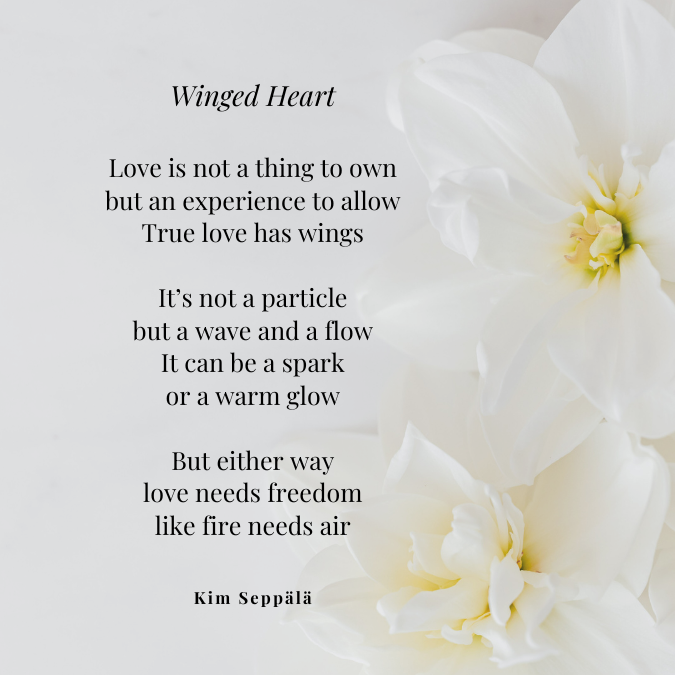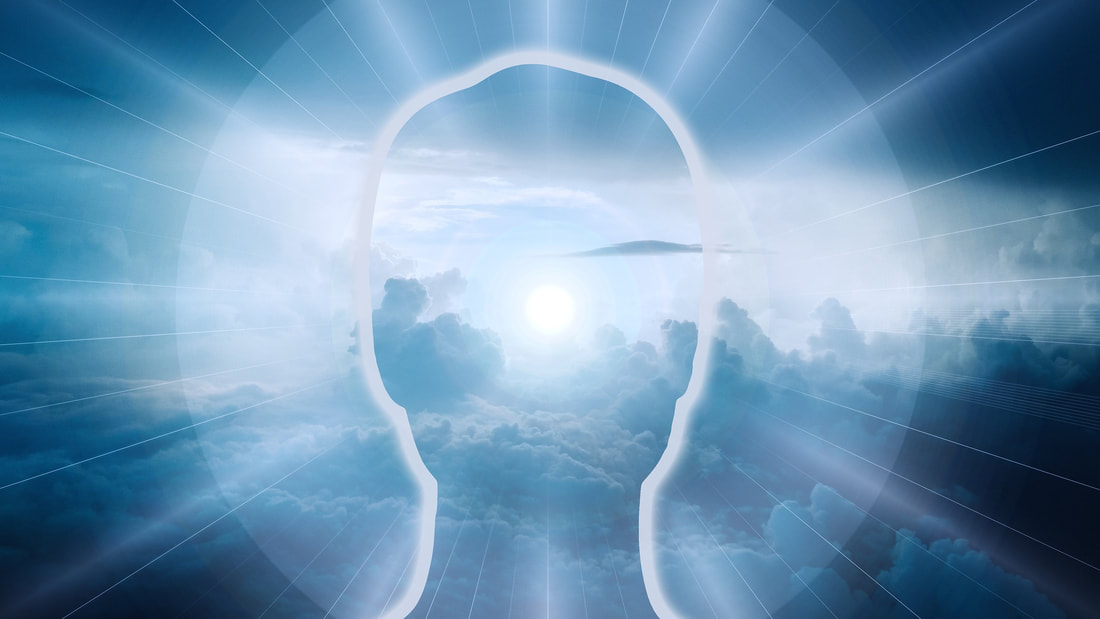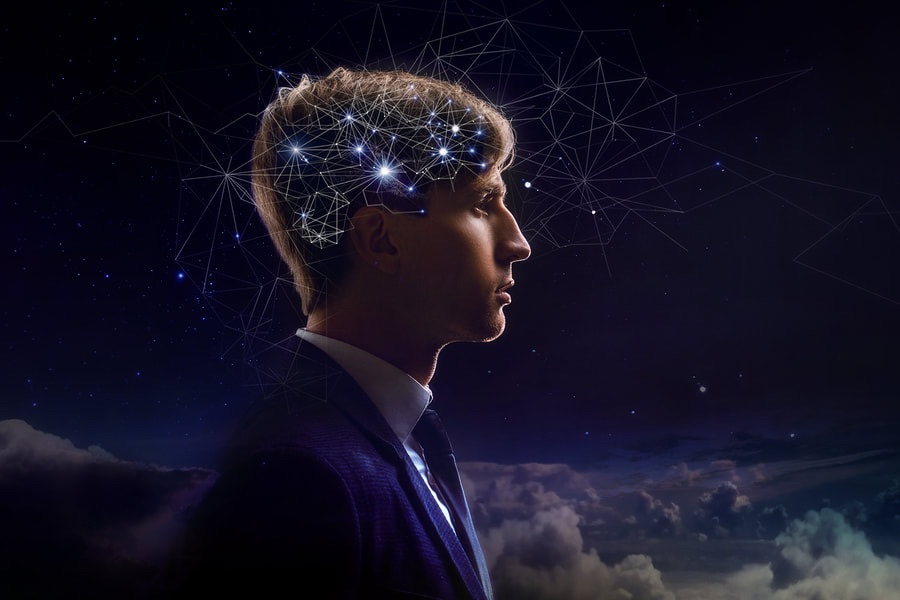|
12/2/2024 0 Comments Love realizedWe all know love through our personal, lived experience. In fact, one might argue that you haven't fully lived on Earth until you've loved. But how would you describe love to someone who's never experienced it? As we're entering the week of Valentine's Day, I'm inviting you to look at your definitions of love. For I believe that love – like everything else – goes new when we step into the embodiment of self-realization. When scientists define love, they use words like: attraction, attachment, bonding, dependency... They talk about the neurochemicals that are released in the brain when we experience love. For example, oxytocin, the bonding hormone. But these neurochemicals don't create love; they are the physiological effect of the experience. Adamus Saint-Germain describes love as an experience and a sense (a way of perceiving reality). He also defines love as the recognition of divinity within another person. Or within yourself, in the case of self-love. What a beautiful definition! It has been said that self-love and self-realization are ultimately the same thing: There cannot be self-realization without self-love, just as there cannot be unconditional self-love without realizing your true divine nature.  I asked my soul how she defines love. Here is her description: "Love is the experience of returning back home after feeling separated from your divinity or from parts of yourself. The 'I am' doesn't really know love because it doesn't know separation. Without experiencing separation, you cannot really experience what it feels like to integrate, unite and come back together with all the parts of yourself. As a human, you experience love when someone sees God within you, and when you see God within them. In that recognition, you get a glimpse of 'home'. Once again you feel the connection, the warmth, the inner unity that you innately know from home, from your divine source. Where humans usually trip up is that they mistakenly believe that this other person is home. The person with whom we have the experience of love becomes the source of love in our mind. In truth, no other person is the source of love or "the way home". They might be the inspiration or the reminder of how to return home. They cannot bring you back home because home is already within you. Whenever there is that dependency of believing that we need another person to feel home, we are susceptible to power games which muddles the experience of pure, clean love." Realized love is the recognition of home within you. One of the difficulties with defining love is that typical human love is often entangled in all kinds of things like karma, drama, ancestral influences, sexual attraction, energy feeding, and transactional agreements... Can we strip all these other dynamics away, and just have pure love? And if yes, how does it differ from 'regular love'? While I understand what pure love is from a theoretical standpoint, I have so many questions still unanswered: Is it something that can be chosen, or only allowed? Is true, realized love the natural consequence of self-realization, or a pathway to embodying more of your true self? And if realized love means unconditional acceptance, as some have suggested, what does that mean in practical terms? For example, what is the difference between accepting someone unconditionally and tolerating imbalanced or even abusive behaviour? Of course, the best answers come through experience, and I can't wait to discover and explore this new kind of love. I also have a strong intuition that when two realized beings come together in love, a new kind of magic is born.
0 Comments
This is the first blog in the series: Applied Metaphysics. While I'm not a fan of New Year's resolutions, I do find it helpful to get clear about what I'm creating in my life. This month, I will introduce my favourite tools for stepping into the New Year with awareness and clarity. Asking the right questions Wrong questions are dangerous. At worst, you can spend lifetimes trying to answer a bad question, such as: “What’s wrong with me?” Or: “How can I prove to myself that I’m worthy?” Another question that I used to ask myself is: “What do I want to achieve this year?” That’s not really a dangerous question, but it is boring as hell. These days, I ask better questions. Like:
Choice vs. goals Once I’ve asked the right questions, I can make choices. Making a choice is different from setting a goal. Feel into the energy of ‘choice’ vs. ‘goal’. ‘Choice’ feels committed, clear, resolute. ‘Goal’ feels far away, like something that takes effort. For example: “I choose to be fully here in life, with awareness, sensuality and an open heart.” Done. It didn’t take any effort, just choice. Of course, I will need to keep making this choice every day until it becomes second nature to me. Compassion vs. criticism Contrary to popular opinion, we are much more likely to succeed at something when we are compassionate with ourselves. Most people believe that they will achieve more when they criticise and judge themselves, but this is a false belief. This year has only just started, and already there were moments when I got impatient with myself. This is the moment to take a deep breath and be in compassion with all the parts of myself. “Okay, I got distracted for a moment there. How can I support myself and get back on track?” Criticism drains you, compassion supports you. Criticism weighs you down, whereas compassion allows you to expand.
Where do you place your focus? Focus is like a magic wand, it directs energy. For example, we can focus on the things we want, or the things we don’t want. Feel into the difference between these two approaches:
Here we have two different energy dynamics. The first example has an energy dynamic of resistance, whereas the second one has an energy dynamic of desire and allowing. The first example sounds like you are focusing on what you want (i.e. to lose weight), but the underlying energy here is: “I see myself as too fat. I don't want that, but I'm focusing on it.” If you feel the energy of the second example (i.e. I choose to feel light), you might notice how there is less resistance and gravity because your focus is directed towards your new choice. If there is something you want to change in your life, focus on what you want, instead of what you don’t want. Focus has a magnetic and gravitational pull to it, so it’s important to be conscious about where you place your focus. Trust Lastly, you don’t need to know how things will manifest in your life. Your soul can see solutions and potentials that your human mind cannot see, and that’s why it’s important to trust in Self. For example, I have chosen to experience true love in this lifetime. This feels like a clear soul desire, so I know it will come to me. However, if I try to manage that as my human identity, I will only get in my own way. Instead, I can make a choice and then let it unfold in the way that soul arranges it for me. My energy will serve me when I’m clear about my choices, but only if I don’t get in my own way. What are your favourite metaphysical skills and perspectives as you step into the New Year? 15/10/2023 0 Comments How to create world peace, starting with yourself: The Goddesses’ Guide to Giving up your Battles.It has been speculated that if women were to rule the world, political and economic disputes between countries would be solved through cordial discussion and a cup of tea – without breaking so much as a fingernail. As opposed to the highly destructive custom of starting wars. Just imagine the difference! Yet women are no less guilty of fighting battles, though many of them may be internal or social in nature. On the level of energy, a battle is a battle, whether it is fought with a sword or with judgment. (This is not to invalidate the immense suffering that a physical war causes.) There comes a point in the experience of enlightenment when it is time to give up the battles and lay down the swords. All of them. The battles fought out of anger, but also the battles fought for protection. The battles fought in the name of darkness and the battles fought in the name of light. The battles fought against others and the battles fought against yourself. Enlightenment, after all, is a state of allowing and acceptance, and it is incompatible with things like resistance and effort. As I’m reluctantly laying down my own sword and dissolving some of my cherished aspects – like the mediator, the feminist, the warrior & the rebel – I decided to seek some divine council from the goddesses. I was especially interested to hear what the feminine warrior archetypes had to say about this topic. Are the goddesses of war still “pro-war”? The first archetype I called up was the Greek goddess Athena, known both as the goddess of war and wisdom. Next, I communed with the Nordic goddess Freyja, known as the goddess of love, sex, and war. That’s an interesting set of domains to specialize in, but who am I to question the job description of a goddess. I was also curious to hear what the Egyptian deity Sekhmet had to share. It turns out that these ladies are peace-loving pacifists. After talking with the trio, I collected their wisdom and assembled a short guide to support anyone in the art of de-battling. Or, in Athena’s words: how to create world peace, starting with yourself. (If you’re wondering how I ‘talk’ with these non-embodied entities, I simply cast a wish to connect with the specific entity, open my inner ear, and write down or record any inspiration that flows in.)
"The only way to be truly fearless is to remember your true nature." The trio explains that war mythology was important at a time when so much of humanity was experiencing war; now humanity is going through a steep transformation into a new age, where physical wars will not be tolerated by humans for much longer. Despite current events, consciousness is rising on the planet at a fast rate.
With this significant shift in consciousness, archetypes also transform to reflect the changes. Athena, Freyja, and Sekhmet ensure that they are still here to play with humans through storytelling and mythology, but with an update in their image. You can always call upon Athena if you need help with relationship disputes or communication issues; call upon Freyja if you want support with self-confidence and self-love, especially after a heartbreak; or call upon Sekhmet for courage to face your inner demons. These celestial ladies also want to remind you that there are legions of angelic beings and masters on the other side of the veil willing and able to support you, if you are going through a tough time or if you’re looking for some angelic company. 13/8/2023 0 Comments New Earth Psychology - envisioning a multidimensional approach to psychology for awakening humansI have a traditional training in clinical psychology. I also have extensive training (and personal experience) in exploring consciousness from a more metaphysical standpoint. Although there are many approaches to psychology and psychotherapy that seek to integrate spirituality with psychology – such as transpersonal psychology, spiritual psychology, parapsychology, Jungian psychoanalysis or energy psychology – none of the existing approaches fully align with my perspective. So one day I sat down and imagined creating my own approach to psychology, specifically with the intention of applying psychological knowledge in a way that supports the process of spiritual awakening and embodied enlightenment. That is how I came to vision my own metaphysical approach to psychology, called New Earth Psychology. If we are to create a New Earth, we need new approaches to psychology. Approaches that can transcend old limitations without bypassing emotions or traumatizing the mind. Most paradigms of psychology are not explicit about metaphysical assumptions, meaning how they view the nature of reality. In today's Western world, the healthcare field generally favors evidence-based practises in psychology. While I understand the practicality of such approaches, I also know that there are many awakening humans who would benefit from psychological support, but who don't align with evidence-based practises for the simple reason that such practises deny the multidimensional nature of reality.
Take, for example, a person who talks to angels or ascended masters and who struggles with depression. If they go to a clinically trained psychiatrist who doesn't believe in non-incarnate beings, they might get diagnosed with schizophrenia or psychosis. On the other hand, if they go to a spiritual mentor, they might get some helpful advice and escape an incorrect diagnosis, but still lack the practical tools for alleviating depression. This is where I come in. My approach is not suitable as a crisis intervention or when someone is dealing with acute mental health distress (in such cases, please refer to a clinical psychologist or psychiatrist). To help potential clients determine whether my approach aligns with their aims and understanding of the nature of reality, I drafted the basic principles on which my approach is based: Tenets of New Earth Psychology 1. The principle of a multidimensional self: As humans, we are multidimensional beings. New Earth Psychology acknowledges and honors the many dimensions of the self, including the physical, mental, emotional, subconscious and highly conscious dimensions. These dimensions of the self are interlinked and in constant communication with each other. New Earth Psychology seeks to explore the limitless domains of consciousness. 2. The principle of direct access to divinity: New Earth Psychology is based on the understanding that each of us has a divine essence, and it is this connection with our innate, natural and eternal divinity that heals us, nourishes us and provides us with the answers we are looking for. Every human being has a divine origin and can access it directly. 3. The principle of energy and consciousness: New Earth Psychology is based on the premise that energy responds to consciousness. Everything that we perceive and experience is energy, but who we are, in essence, is consciousness. Everything in our external reality is a reflection and manifestation of our internal reality (our beliefs, expectations, and perspectives). To change something in our external reality, we must change the way we perceive ourselves and how we relate to the world. 4. The principle of creatorship: New Earth Psychology assumes that we are creator beings, and our experiences are created by our choices – whether these choices are conscious or not. Everything within our perceived reality exists because it serves some aspect of the self. To understand why something is in our reality, we must be aware of the many aspects of the self. Freedom is the result of owning our inherent creatorship: We always have the freedom to make a new choice and create a different experience. 5. The principle of understanding aspects: The Self expresses, experiences, expands and explores itself through aspects. Aspects are like acts or roles that the soul wears in its quest to know itself. The human has countless aspects that can be dormant or expressed, fragmented or integrated, feminine or masculine, light or dark... A natural and inevitable part of awakening is the increased awareness and integration of one's aspects. This process is central (though not unique) to New Earth Psychology and has been called shadow work, inner parts work, Aspectology or simply, integration. 6. The principle of integration: According to New Earth Psychology, the root of suffering is a belief in separation. For example, when we feel disconnected from parts of the self, disconnected from the divine, or disconnected from our surroundings. The solution to this inner fragmentation is integration. Integration could be described as a sense of divine belonging. Integration requires radical acceptance (non-judgment) of one’s aspects and experiences. 7. The principle of expansion: Our consciousness expands through experience and expression. Through our human experiences, the soul gathers wisdom. Wisdom transforms any painful experience into healing, new potentials, self-awareness and, eventually, ascension. Through each healing experience, we arrive at a higher perspective. While there is a point of integration – in other words, a point of completion where old karmic imbalances or emotional wounds have been transformed into wisdom and compassion – there is no end point to expansion. 8. The principle of presence: New Earth Psychology understands that all healing happens in the present moment. Even when we are addressing emotional wounds from the past or anxiety about the future, the solution or the healing can only be found in the present moment. Therefore, many of the tools and techniques used in this approach centre around being grounded, present and embodied. 9. The principle of healing through joy: New Earth Psychology maintains that awakening is possible without suffering. This approach to psychology seeks ways to healing and integration that are joyful, creative, playful, simple, magical, and grounded. We can have both depth and joy at the same time. Intense and uncomfortable emotions are inevitable in awakening, however, there are many things that can make the experience more graceful and fulfilling. 10. The principle of sovereignty: As individual, sovereign beings, the healing and awakening journey is unique for each of us. New Earth Psychology acknowledges that there are many pathways to the self, and each person knows best what resonates with them. The principle of sovereignty highlights the understanding that we can each access our divine knowingness from within. 11. The principle of self-love: Healing is practically synonymous with allowing self-love. New Earth Psychology places much of its focus on the relationship with self. After all, it is the relationship with yourself that determines your relationships with other humans and how you experience life in general. There are many layers to self-love, ranging from practical self-care and boundary setting to practising self-compassion. There are also the more subtle ways of allowing self-love, such as connecting with your true essence and allowing your soul's eternal love for you. Let me know what you think of New Earth Psychology. Part 4: Does healing ever end? Many people going through spiritual or psychological transformation wonder if there is an end point to healing, and if so, when do you reach that point? The answer depends on how we define healing. If healing means realizing and accepting your connection to the divinity and love within, then it is indeed a defined point that can be arrived at – or more accurately, allowed. Similarly, if healing means being in a harmonious relationship with your reality, it is absolutely possible to get to that position. At the same time, we are beings of free will; in other words, any experience or state that we create for ourselves can be recreated or uncreated in the next moment. If we want to live in a state of high frequency, we do need to continue to choose high frequency states. As long as you live in a biological body and amongst other humans, the alignment with your soul and the alchemizing of experiences into wisdom will be a continuous practise. Re-alignment doesn’t end just because one is enlightened. Just like the house doesn’t clean itself simply because you are self-realized, so your emotional self needs some attention, self-care, and maintenance to stay balanced. What then is the difference between a person who is realized versus a person who isn’t yet? A self-realized being will remember that they are divine, even if the house is messy and even while they are an emotional mess themselves. To answer the question, then, I would say: while there is an end point to integrating wounds, expansion never stops. While there is an end point to integrating wounds, expansion never stops. There is a point in time where the effects of trauma no longer affect you, where you no longer get triggered, and where suffering ends. Those points are not necessarily simultaneous; for example, you might still get triggered, without plunging into suffering. To share a personal example, I used to suffer from various mental health issues, such as debilitating PTSD, anxiety and depression. While I still experience moments of feeling emotionally triggered, anxious, or having a low mood, I no longer experience it as suffering. Those moments are rare, and when they arise, I now approach them in a more relaxed and self-loving way. It’s like this: I still occasionally find myself in a dark room, but the darkness doesn’t scare me as much anymore, because I know about the other rooms in the house that are full of light, and I even know about the beautiful gardens outside the house. I also know that I’m not imprisoned in the dark room, but just visiting it for a short moment. It’s a difference in perspective. You know that you have healed something when you can see it from a light and loving perspective. It was through years of conscious breathing that I was able to integrate my traumatic experiences and psychological imbalances, and as a result, experience a real sense of safety and self-love again. While I still continue integrating and expanding, becoming more authentic and self-loving, I can honestly say that I have healed most of my emotional wounds.
Another interesting question is how healing relates to self-realization. I once believed that enlightenment means that a person is “fully integrated”. I’m starting to wonder now if full integration even is possible in the biological state. Perhaps it is, but I haven’t witnessed it yet. Every self-realized person that I have met has a deeply anchored self-awareness and self-love, and seems more at home within themselves than the vast majority of people. At the same time, every realized individual that I have met, still has a few un-integrated aspects within their consciousness. These days I believe that some of the deepest imbalances are only healed after self-realization, because the darker the aspect, the more awareness and self-love is needed to feel safe enough to face this inner darkness, and thus integrate it. Awakening and embodied enlightenment are riddled with paradoxes, as you might have noticed. And while every path “back home” is unique, I do believe that self-awareness and integration ultimately lead to a healed and whole state of wellbeing. In conclusions: it might not always be fun to face your demons and dragons, but it’s definitely worth the trouble. You never know what magnificent treasures might be uncovered in that darkness. 17/6/2023 0 Comments The Metaphysics of Healing, Part 3Part 3: How to heal In this part of the blog series, I explore how metaphysical knowledge can be applied to find practical methods for healing. Let’s start with the essentials. The key to healing is awareness, love, and trust of self. Self-awareness is what shines light into the shadows, allowing you to see truth and see what needs integration; Self-love is what creates the safe space necessary to invite the darkness into the light. Self-love is the magic that alchemizes any experience (even the most painful ones) into wisdom; Self-trust teaches you to trust in your divinity even when the human aspects may seem vulnerable, confused, or unreliable. The more you practise love, awareness and trust of Self, the more you become them. While it may seem self-absorbed to focus so much on self-love, there is a reason for this. Perhaps you’ve heard of the old hermetic principle: “As above, so below; as within, so without.” This principle summarizes neatly how we need to change our internal state to cause change in our external state; all change starts with the relationship you have with the various parts of yourself. The practise of healing, then, is to apply self-love, awareness, and trust on all levels of beingness. To understand how healing works, you might ask yourself: How can I apply awareness, love and trust of self on the physical, psychological, energetic, and spiritual levels of existence? I'll provide some examples below. On the level of the body, healing emotional wounds means rewiring your nervous system. Examples of somatic healing include:
On the level of psychology, healing emotional wounds means creating healing experiences in relationships, starting with how you relate to yourself. This is because the most effective way to change a belief is to have new experiences that disconfirm old, limiting beliefs. Here are some ways to practise psychological healing:
From an energetic approach, we can practise healing in the following ways:
From a spiritual approach, we can practice healing in the following ways:
If you feel overwhelmed by this list, remember that the most important thing is not what you do but how you do it: Ideally, with a lot of compassion. Perhaps you’ve noticed that there is one method that is mentioned repeatedly: conscious breathing. If I had to choose one method or tool for integration, it would be conscious breathing. Conscious breathing is pure magic; it allows you to calm your mind, become more present, regulate your nervous system, remove energy blocks, and feel connected to your divinity. It is the most simple, yet most powerful tool that I know for integration, and it’s always available to you.
I’ve also provided my formula for how to heal below: How to heal = Making a choice to heal + conscious breathing + self-love practices + allowing the natural process to unfold + trust. I hope this blog post has been helpful, and even inspired you to ponder: what’s your formula for healing? In the next part of this blog series, I will discuss how healing changes through self-realization, and whether there is an end to it. 17/6/2023 0 Comments The Metaphysics of Healing, Part 2(This is the second part of the blog series, The Metaphysics of Healing.) Part 2: What does it mean to heal? Hundreds of therapy modalities have been developed in an effort to explain what it takes to heal psychologically. Being a metaphysician, I like to explore the truth from many perspectives, and then distil the matter to its essence. Below, then, is my attempt at defining healing. If you prefer to keep things simple, feel free to skip to the end of this post, where I describe my ‘formula for healing’. Healing emotional wounds can mean different things, depending on which dimension of the self we approach it from:
While it is helpful to approach healing in a holistic way, going to the source (the spiritual dimension) is the most essential level to focus on in the healing process, because it is the dimension that permeates and encompasses all the other dimensions. To use an analogy, healing is similar to pulling weeds: You can reach temporary, superficial change by cutting the weeds. To have a long-lasting effect, however, it is necessary to pull the weeds from the roots, so they don’t grow back. In practise this means that while it is important to take care of the body and the mind and have energy awareness during your healing process, it is absolutely essential to address any feelings of separation that you (or an aspect of you) experience in relation to your divine core. One way to describe this spiritual approach to healing is integration. ‘Integration’ is the natural process when the seemingly separate aspects of the self are gathered together and return to a sense of inner oneness or wholeness. Like the facets of the diamond, the aspects of the self might still maintain their individual placement and their unique way to reflect the light, yet they recognize themselves as one facet of the diamond. 'Integration' is the natural process when the seemingly separate aspects of the self are gathered together and return to a sense of inner oneness or wholeness Integration is the key to any long-lasting psychological transformation or healing. It could even be said that integration is the ultimate healing. In practical terms, it means that the divine and the human facets are in awareness, acceptance and allowing of each other. Both in the New Age and the psychotherapy field, there is much talk about shadow work, parts work, inner child work, etc. These are different approaches to integration. The concept was first popularized by the psychoanalyst Carl Jung, although similar ideas have existed for millennia in various cultures (for example, Buddhists teach the concept of inviting and accepting your inner demons). To understand the essence of healing, it is also necessary to mention self-love. Self-love is both the cause and the effect of integration Acceptance, awareness, and trust of self are both the way and the destination of healing. There can be no true, lasting psychological transformation or healing without self-love.
The definition, or formula that I propose, thus, is: Healing = integration = self-awareness + self-love + self-trust In the next blog post, I will outline how integration works in practise and what the various methods are. 17/6/2023 0 Comments The Metaphysics of HealingWhat is the relationship between healing and self-mastery? Does embodied enlightenment mean that you are “fully healed”? And how does integration play into all of this? You’ve probably noticed that healing is inevitable on the path of self-realization and embodied enlightenment. In fact, the quest for healing (together with failed attempts at healing) is often the catalyst for spiritual awakening. Have you ever thought about what healing emotional wounds really means? In this blog series, I will explore this topic using both my clinical and metaphysical background. As I like to explore subjects in-depth, I’ve divided it into four parts: 1) What causes emotional wounds, 2) What does it mean to heal, 3) How to heal, and 4) Does healing ever end? Let’s dive into the first part. Part 1: What causes emotional wounds? To understand healing, we must first understand what causes emotional wounds or psychological injuries. Contrary to the mainstream clinical approach, I posit that we are multidimensional beings: psychological injuries don’t take place only on the mental level, but also on the energetic, physical, and spiritual levels of being. Below is a description of how imbalances develop and manifest in the different dimensions of human experience. Psychological injuries manifest on the mental, energetic, physical and spiritual levels of being. On the level of physiology, a wound or imbalance is the result of a survival threat (or a perceived threat). It is noteworthy to mention that because we are a social species, social threats – such as bullying, judgment or rejection – are perceived by the mind as survival threats. In humans, the nervous system is designed to regulate emotions, to easily shift from one emotional state to another, depending on what is needed. Prolonged or intense emotional injuries – especially ones that are experienced in childhood – can cause dysfunctions in the nervous system, as well physical changes in the brain. Emotional wounds, therefore, take place in the body just as much as in the mind. On the mental level, emotional wounds are the result of neglecting physical or emotional needs in a continuous or severe way, causing the individual to develop beliefs which are adaptive and necessary for survival in the short-term, but become limiting in the long run. Without limiting beliefs, an emotionally painful experience will dissolve quite easily provided that our basic needs are met. On the energetic level, any wound, emotional or physical, can be seen as a manifestation of an energetic imbalance, usually in the form of “stuck energy”. Emotional energy is meant to be in a state of flow, but when this energy is not allowed to flow freely, it becomes stuck. Stuck energy means that an aspect of the self is stuck in a vibrational state of low frequency. In essence, every emotional wound or trauma is the result of feeling separated from the divine consciousness and love at the core of our being. On the spiritual level, any suffering or sense of emotional pain is the result of perceived separation between the human and the divine. This is the case even when the individual doesn’t believe in God. Most humans have ‘spiritual abandonment issues’ on a deep, often unconscious layer: We feel abandoned by God or by our Higher Self. In everyday life this is often experienced as loneliness, low self-worth, or a lack of belonging. Although this separation from our divine roots is only an illusion, it can feel very real on the human level. In essence, every emotional wound or trauma is the result of feeling separated from the love at the core of our being. It may seem that these different dimensions of experience are paradoxical, yet they can actually all be real and valid at the same time: Just as you are not either emotional or physical, you are not either human or divine – you are all of that, and more, all at once! Another important thing to remember is that while imbalance can occur on many levels of our beingness, the divine essence of our being is never damaged, imbalanced, or otherwise tarnished. The human body, the mind and even our energy body are all highly susceptible to imbalance, yet the soul and our core consciousness are eternal, invincible, and limitless. At the core of our being, there is never a ‘need’ to heal, because there is never anything that is broken or not whole. To truly understand and receive this truth is the most important step in healing. From the perspective of soul, there is nothing to heal because we are never broken – to understand and accept this truth is the most important step in healing. In the next blog post, I will explore what it means to heal.
Originally published 5/28/2019 There is a crack spreading across the globe, breaking our world in two. A crack in time and a split in consciousness. Can you feel it? There was a time when the evolution of consciousness expanded in slow spiral loops: the old sliding into the new, almost imperceptibly. Not so anymore; we're living in an age of threshold − an age of drastic, dramatic changes that shake the world and fracture the collective consciousness of humanity. And I'm not just referring to the technological revolution or the political climate. No, those are superficial manifestations of the real change that's taking place. Awakening is a quantum leap I'm talking about awakening. In the past, awakening was a rare exception to the rule − a mysterious phenomenon experienced by a few eccentric individuals. In this age of quantum change, awakening is touching all of humanity (although not everyone is aware of its effects). The split in consciousness is a split between old and new. This rift is dividing the Earth into different strata, each with their own perception of reality: the part of humanity that chooses to hold onto the old (meaning the mental, linear, duality-based reality) and the emerging new species of conscious humans who are choosing the new (a perspective beyond duality). We see it in politics, business, entertainment, culture, the environment, in family structuring and relationships, and especially in spirituality: a constant push and pull between tradition and innovation, between structure and creativity, between control and freedom. Of course there has been innovation with each new generation evolving and pushing the limits of the old. Yet it's different this time around; now there is a contrast so stark between old and new that it affects every aspect of life. We are forced to choose our position on a daily basis: "do I buy into duality today, or am I ready to expand?" Just by being alive at this time, each one of us is choosing − in each moment − whether or not to be aware. Change goes new On the surface we see a lot of polarization taking place, and that can be overwhelming if we don't see the bigger picture. Humanity as a whole, and especially those of us choosing awakening and self-realization, are experiencing quantum change. In the past, new meant a new version of the old: There was generally a sense of continuity, predictability or linearity to the nature of change; effect followed cause in a certain pattern. Well, the nature of change is changing now! Awakening means change beyond what we know, understand or control. When enough individuals allow their awakening, it causes a cascade of quantum change on a global level, which is then reflected as new innovations or old structures breaking down. Awakening and self-realization have been the deepest passions in my life. I define 'awakening' as breaking the limits of who my mind thinks I am. For me awakening has very little to do with external things, like practicing meditation or yoga. Those are tools that might help create a safe space in which to allow the natural, organic unfolding of awakening to take place. Awakening is hardcore dedication to see reality clearly; it's an unquenchable thirst to know my true self, no matter what. It's releasing every belief, perspective and identification that is not authentic, natural or free. I define awakening as breaking the limits of who my mind thinks I am; it's an unquenchable thirst to know my true self, no matter what. Awakening is a tumultuous phase where the individual frees herself/himself from the societal, mental and biological conditioning, and steps into self-responsibility (also called 'sovereignty'). This phase rarely, if ever, happens without resistance. Resistance to the new is conditioned into the old, so until you release the old, everything within you still operating from an old program will resist the new. Ironic, right? So instead of jumping into the new in one bold leap, the awakening human usually gets stuck in a plethora of distractions and diversions. Oh, how I loved playing those games. I held on to every defense mechanism, right until the walls protecting my precious ego crumbled into pieces, until each reference point dissolved before my eyes, until my mind was turned upside down and my emotions inside out. Awakening is the most humbling, intense and terrifying experience before it becomes the most freeing experience: It's humiliating, because you see all the lies you've told yourself. It's terrifying, because our old sense-of-self is dying and you have no idea what's waiting for you on the other side. The freedom of choice That thrilling moment right there is really a threshold, an opportunity to choose something different; to go beyond and open up to the unknown. What might seem like hitting rock-bottom − or worse, finding yourself in a dark bottomless void − is actually what I call the Break Point. The Break Point is an opportunity to make a choice and allow the change that you've been praying for. There are always several options available (after all, we are beings of free will). The options are basically to 1) remain stuck and distract yourself 2) go crazy 3) cross over 4) go beyond the mind... I chose the first 3 options countless (life)times over and over again, before I was finally ready to try the last option: To go beyond the mind, into the undefined new; to break the rules of what I'm supposed to believe to be real; to release everything that I'm expected to hold onto, including a defined identity and fixed, limiting belief systems. Really it was a matter of having exhausted all the other options, having drained all of my inner resistance (and trust me, there was a lot), and used up every excuse I could think of to justify my resistance. I didn't let go of the old in a heroic act of bravery; I let go because I had tried everything else for a long time! 'The new' arrives one breath at a time But here's the thing: Choosing 'new' is not a one-time choice. 'The old' is our default function; filtering our natural wisdom through the anxious, dualistic, easily influenced mind is how we have been programmed. That old program is the automatic mode, because it's wired into our nervous system. Choosing to perceive ourselves and reality through our sovereign, free perspective rather than the default perspective feels like going against our instincts, because even those instincts are connected to the old program (the limited consciousness). 'The new' that I'm talking about, is a new way of being and sensing, a new consciousness. It's not a new version of the old. It's not even a new program or a new set of belief systems; it's not reprogramming our thoughts or finding new ways to deal with the old. It's a kind of radical inner peace that surpasses any understanding, as Yeshua (Jesus) has described it. In other words, going beyond the mind means choosing to be in a state that is constantly new, constantly unfolding more of itself, constantly changing expression and form − it's the state of being liberally alive! The old mental programs and patterns dissolve gradually and naturally when we persistently continue to choose awareness, openness and peace throughout the moments of our daily life. While the meditation cushion is a great place to start, real transformation takes place in our relationships, in the kitchen or when we're stuck in traffic. That's the 'real' of realization. Awakening breaks all the rules. Awakening breaks all the rules that you have known before. It breaks the rules of how to perceive and organise reality. It breaks the rules of how you relate to your thoughts and emotions; it breaks the rules of who you thought you were and could be, how to live your life, and how to deal with pain. It breaks the rules of right and wrong...
The mind is built on rules and patterns. So once you stop following all the rules and you stop believing in your thoughts, the mind experiences a kind of "break down". It has nothing to hold onto, nothing to give it direction, or to contain its duality. The mind loses its old purpose and clashes against its own limitations. This is usually experienced by the awakening human as anxiety, existential fear and obsessive self-doubt. The mind will do anything to stay in control, because control means survival from the mind's perspective. Sooner or later, however, your connection to your own wisdom will become so clear and true that control becomes a nuisance rather than a necessity, and you fall headfirst back into your free Self. Just remember: You're not going crazy, you're just breaking the rules of how to perceive yourself and reality. It might be terrifying, confusing and humiliating right now, but it's all perfect - it's real and divine, and it's perfect. You're on the right path, even if you can't see the path right now. |
Hello! I'm Kim.On this blog I cover topics related to awakening and self-realization; metaphysical psychology; consciousness; creativity; and multidimensional living. Archives
February 2024
Categories |
Search by typing & pressing enter









 RSS Feed
RSS Feed